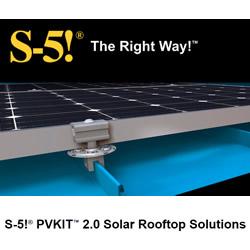The collector being enclosed or open faced would require surface care and significant weekly cleaning. Sopogy's panels would park at night, meaning the collector surfaces are protected so as not to be exposed.
Concentrated Solar For Hawaii
Adrian Akau and Darren T. Kimura | Sopogy
| The collector being enclosed or open faced would require surface care and significant weekly cleaning. Sopogy's panels would park at night, meaning the collector surfaces are protected so as not to be exposed. |
| Concentrated Solar For Hawaii |
|
By Adrian Akau
and Darren T. Kimura www.sopogy.com |
Millions of visitors flock to Hawaii every year in search of the sun and thanks to the Hawaii State government, that sun is to be used for more than just perfect tans. June 29 2007, Governor Linda Lingle authorized a $10 million Special Purpose Revenue Bond to construct the first solar concentrated farm in the State of Hawaii. The Bond will partially finance the development of a 3.5 Mw solar farm at the Natural Energy Laboratory of Hawaii (NELHA) on the island of Hawaii. The solar farm will use Sopogy's patented solar concentrating panels that are specifically designed for tropical, coastal and rooftop installations. These panels protect all optics, reflectors and vital system components from the elements and storms. The system has a low first cost price point enabling an advantage against photovoltaic panels and the concentrators use less space than PV panels, a critical advantage when dealing with rare land availability.
NELHA was selected as project site because this area is covered by miles
of black lava desert.
This area is also home to the world famous "Ironman Triathlon". NELHA is also known for its Ocean Thermal Energy Conversion (OTEC) project which brings very cold, high mineral density ocean water up from the 1500 foot depth. Originally used to produce power, the OTEC deep sea water lines now are used in the commercialization of desalinated drinking water. This bottled water industry has grown quickly to become Hawaii's top export industry. Unfortunately, while demand for this product has been increasing, so have power costs. For park tenants, power expenses have doubled in the past two years and tripled in the past three years. Hawaii obtains most of its power by burning of "sour" (high sulfur) oil from Indonesia and the present cost of oil has proven to be unpredictable in its seemingly never-ending spiral upward. Sopogy's farm will be most welcome to an area with very good sun power resources as the Kona coast is practically a barren wasteland of lava flows from ancient times. This new attraction will be providing jobs and assist in increasing state revenues which will be due at least in part, to the stabilization of the electric rates which has, up to this point in time, discouraged expansion of the facilities.
Sopogy's technology is based on thermal energy which can be produced during sun-hours but can also be stored for late afternoon use or even evening peaks. Sopogy is working with the Hawaiian Electric Company to put a power purchase agreement in place which should be beneficial to both companies. Sopogy's technology is also expected to produce power at a lower Kwh rate than the retail rate from utilities in higher cost markets such as Hawaii.
Concentrated solar such as with Sopogy's technology, verifies that steam power production of electricity need not be strictly dependent upon the burning of coal, oil or natural gas. As we move into the first quarter of this century, we should see growth in this type of technology. A consortium in Europe has hopes to implement concentrated solar in North Africa and send power via transmission lines northward to its member countries. Concentrated solar would also be especially desirable in China as well as India where coal burning has been linked to serious health problems, global warming, acid rain and crop damage. Envionmental goals in both countries warrent the development of clean technology. We are indeed fortunate that Sopogy may be able to prove that its energy system is both sustainable and economical in providing power to all areas of the world with good solar resources. |
|
The content & opinions in this article are the author’s and do not necessarily represent the views of AltEnergyMag
Comments (0)
This post does not have any comments. Be the first to leave a comment below.
Featured Product




 This
new technology is based on traditional concentrated solar power systems
used in the Mojave Desert. The collector being enclosed or open faced
would require surface care and significant weekly cleaning. Sopogy's
panels would park at night, meaning the collector surfaces are protected
so as not to be exposed. Still, there is a cleaning process that would
need to be followed to ensure high efficiencies because dust and salt
particles would accumulate daily from trade winds depositing dust and
suspended ocean salt particles on exposed surfaces which need to be kept
transparent.
This
new technology is based on traditional concentrated solar power systems
used in the Mojave Desert. The collector being enclosed or open faced
would require surface care and significant weekly cleaning. Sopogy's
panels would park at night, meaning the collector surfaces are protected
so as not to be exposed. Still, there is a cleaning process that would
need to be followed to ensure high efficiencies because dust and salt
particles would accumulate daily from trade winds depositing dust and
suspended ocean salt particles on exposed surfaces which need to be kept
transparent.